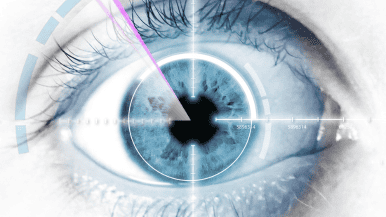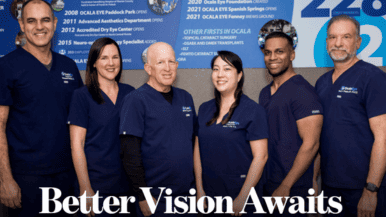LASIK specialists at Ocala Eye recently answered patients’ most commonly asked questions about LASIK surgery in a Facebook Live Q&A event.
Below you’ll find a handful of the LASIK questions as well as answers from Nikki Nix, COA, and Alissa Jensen, COA.
If you have additional questions not answered here, please schedule your free LASIK evaluation here.
Alissa explains that during the LASIK procedure there will be pressure, but nothing uncomfortable to patients.
Find Out if LASIK is Right for You
Want to know if you might be a candidate for LASIK or other vision correction procedures? Take our brief LASIK candidacy quiz to find out today.
Once you submit the quiz, you’ll be sent your free resources and a member of our team will reach out to schedule your free consultation appointment.






